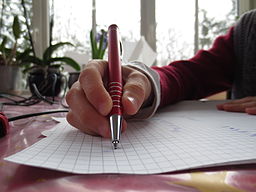
How to write a good Introduction
Whether you are writing an essay, a thesis, a dissertation or a project, creating the best possible introduction to your work is vital.
The introduction is where you have the opportunity to make an instant impact on your reader. If you are able to form a good impression of your abilities to whoever is going to mark your work, within the first paragraph, then you are off to a good start.
Introductions should always…
– be kept short, preferably to no more than four or five sentences. There will be time to expand on the points you make within the introduction during the body of your work. It is important not to stray from the point of your essay and begin rambling.
– include an attention-grabbing first sentence.
– make it clear what issue or issues your essay will be addressing.
– if the title to your essay is phrased as a question it is wise to include the premise of that question within the introduction. For example, if the essay title is, “Which factors in British Society led to the introduction of the Poor Law?”, then your introduction should include a sentence like this: ‘The introduction of the Poor Law in Britain was the result of a number of factors, including…’ At this point, simply list the factors involved. Each one of these points can then become a paragraph of your essay in their own right later on.
– if your project is based around a famous person then you could use a quote from them to add extra impact and display your knowledge of the character in question. For example, if you are writing about the life and times of William Shakespeare, your opening sentence could use one of his quotes: ‘William Shakespeare famously said, “Some are born great, some achieve greatness, and some have greatness thrust upon them.” This quote could be seen as a summary of his own life…’.
In short, any introduction should set the tone of your argument, illustrate the questions you intend to answer and leave your reader wanting to learn more.
